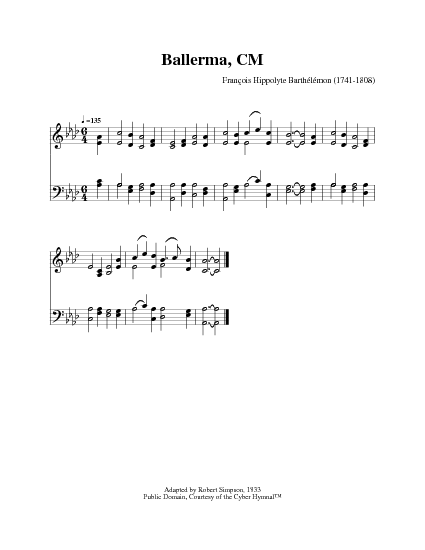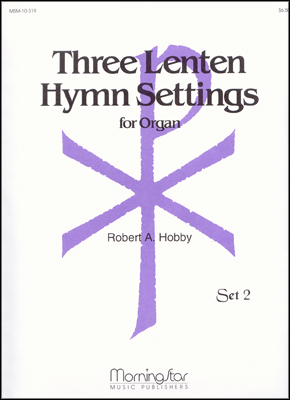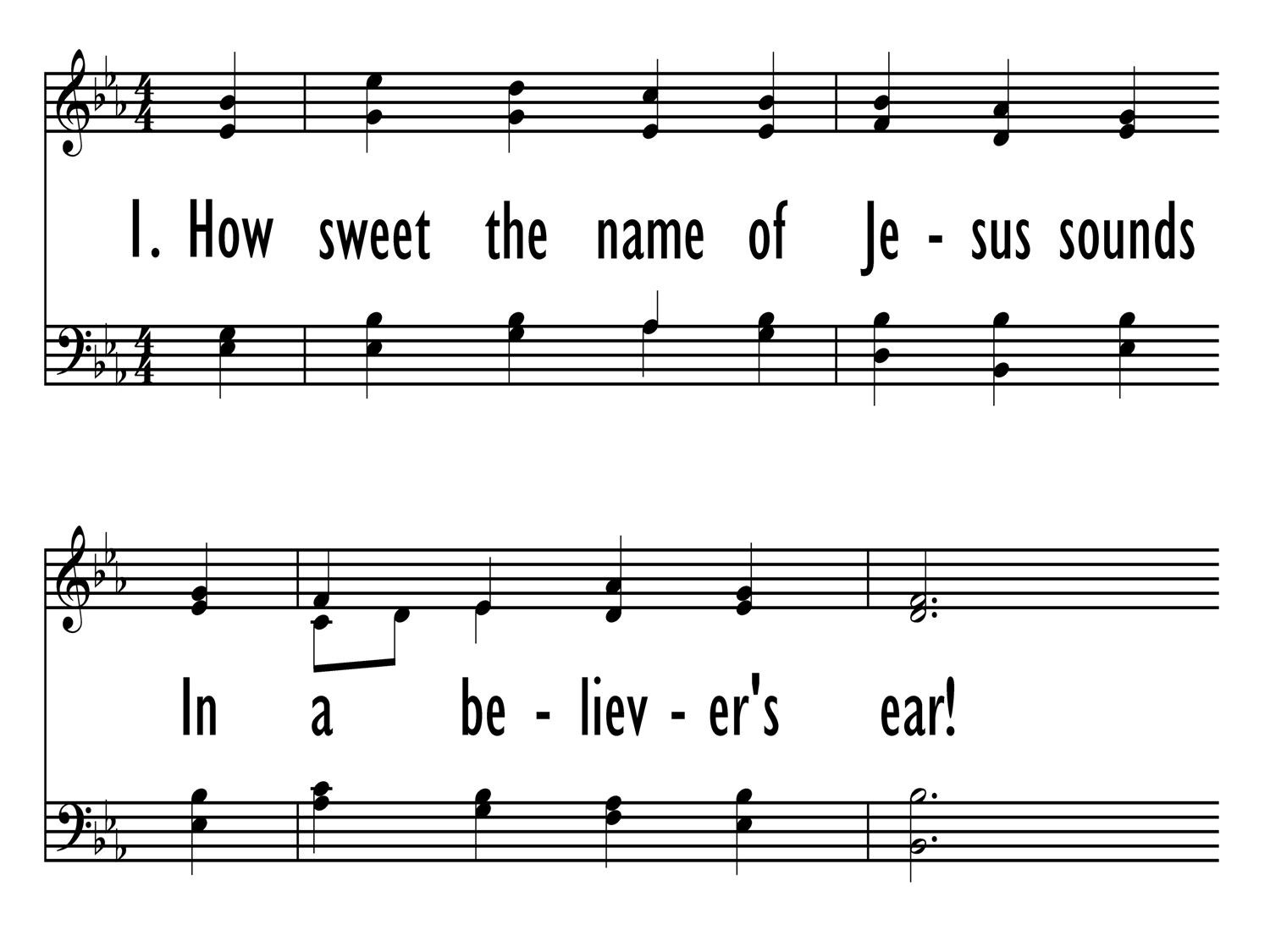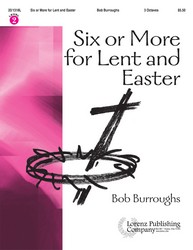- |
User Links
Pleading His Gracious Name

Approach, my soul, the mercy seat
Author: John Newton (1779)Published in 612 hymnals
Printable scores: PDF, MusicXMLAudio files: MIDI
Representative Text
1. Approach, my soul, the mercy seat
Where Jesus answers pray'r;
There humbly fall before his feet,
For none can perish there.
2. My only plea, your promise true;
With this I venture nigh;
You beckon burdened souls to you,
And such, O Lord, am I.
3. Bowed down beneath a load of sin,
By Satan sorely pressed;
By war without and fears within,
I come to you for rest.
4. Thus be my shield and hiding place!
That sheltered near your side,
I may my fierce accuser face,
And say the Lamb has died.
5. Oh, wondrous love! To bleed and die,
To bear the cross and shame,
That guilty sinners, such as I,
Might plead your gracious name.
6. “Poor tempest-ravaged soul, be still,
My promised grace receive,”
’Tis Jesus speaks—I must, I will,
I can, I do believe.
Source: Hymns and Devotions for Daily Worship #350
Author: John Newton
 John Newton (b. London, England, 1725; d. London, 1807) was born into a Christian home, but his godly mother died when he was seven, and he joined his father at sea when he was eleven. His licentious and tumultuous sailing life included a flogging for attempted desertion from the Royal Navy and captivity by a slave trader in West Africa. After his escape he himself became the captain of a slave ship. Several factors contributed to Newton's conversion: a near-drowning in 1748, the piety of his friend Mary Catlett, (whom he married in 1750), and his reading of Thomas à Kempis' Imitation of Christ. In 1754 he gave up the slave trade and, in association with William Wilberforce, eventually became an ardent abolitionist. After becoming a tide… Go to person page >
John Newton (b. London, England, 1725; d. London, 1807) was born into a Christian home, but his godly mother died when he was seven, and he joined his father at sea when he was eleven. His licentious and tumultuous sailing life included a flogging for attempted desertion from the Royal Navy and captivity by a slave trader in West Africa. After his escape he himself became the captain of a slave ship. Several factors contributed to Newton's conversion: a near-drowning in 1748, the piety of his friend Mary Catlett, (whom he married in 1750), and his reading of Thomas à Kempis' Imitation of Christ. In 1754 he gave up the slave trade and, in association with William Wilberforce, eventually became an ardent abolitionist. After becoming a tide… Go to person page >Text Information
| First Line: | Approach, my soul, the mercy seat |
| Title: | Pleading His Gracious Name |
| Author: | John Newton (1779) |
| Meter: | 8.6.8.6 |
| Language: | English |
| Notes: | Spanish translation: See "Al trono de la gracia, ven" by Sharon Vater |
| Copyright: | Public Domain |
English
- A Baptist Hymn Book, Designed Especially for the Regular Baptist Church and All Lovers of Truth #d37
- A Choice Selection of Hymns and Spiritual Songs for the use of the Baptist Church and all lovers of song #61
- A Choice Selection of Psalms, Hymns and Spiritual Songs for the use of Christians #473
- A Church of England Hymn Book: adapted to the daily services of the Church throughout the year #231
- A Collection of Evergreen Hymns, for All the People. New ed. #d12
- A Collection of Hymns & Spiritual Songs, for Public and Family Worship #d6
- A Collection of Hymns and Prayers, for Public and Private Worship #253
- A Collection of Hymns for Public, Social and Domestic Worship #d47
- A Collection of Hymns for Public, Social, and Domestic Worship #427
- A Collection of Hymns for Public, Social, and Domestic Worship #d47 10 shown out of 345
Latin
Notes
Approach, my soul, the mercy seat. J. Newton. [Lent.] First published in the Olney Hymns, 1779, Bk. iii., No. 12, in 6 stanzas of 4 lines, and again in all later editions of the same work. It came into early use in the hymnals and has attained to a foremost position as one of the most popular of Newton's productions. In the Olney Hymns it is the second of two hymns headed, "The Effort." The first hymn by Newton on this same subject begins:— "Cheer up, my soul, there is a mercy seat." No. 11, in 6 stanzas of 4 lines as above. Its similarity to "Approach, my soul," has led some to suppose it to have been re-written by an unknown compiler. In the American College Hymnal, N. Y. 1876, stanzas ii., iii. and iv. are given as No. 280, "Lord, I am come, Thy promise is my plea." The use of this hymn in any form is very limited.
-- John Julian, Dictionary of Hymnology (1907)
Timeline
Arrangements
Piano/OrganMore Piano/Organ... |  |
ChoralMore Choral... |  |
HandbellsMore Handbells... |  |
PowerPointMore PowerPoint... |  |
Media
- MIDI file from The Cyber Hymnal #211
- MIDI file from The Cyber Hymnal #3726
- MIDI file from The Southern Harmony, and Musical Companion (New ed. thoroughly rev. and much enl.) #183
- MIDI file from Songs of Grace and Glory: A New and Inspiring Selection of Sacred Songs for Evangelical Use and General Worship #336


 My Starred Hymns
My Starred Hymns



